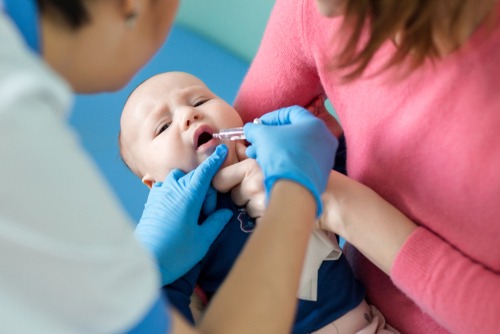
Through a deal between the World Health Organization and others with GSK, a rotavirus vaccine will be available to more children living in low-income nations facing humanitarian crises.
The agreement makes use of the multi-partner Humanitarian Mechanism, launched in 2017, where manufacturers make their vaccines available at their lowest price for use in emergencies across countries of all income levels. In addition to WHO, Médecins Sans Frontières (MSF), Save the Children, UNICEF are also involved through the Humanitarian Mechanism.
“We welcome this engagement from manufacturers and hope it will be a step towards making more vaccines available in the future at affordable prices,” Dr. Kate O’Brien, director of immunization, Vaccines and Biologicals at WHO, said. “It is unacceptable that some of the most at-risk children are not vaccinated against devastating diseases like rotavirus because of lack of availability or high costs.”
Rotavirus is the most common cause of severe diarrheal disease in children under 5 years globally. It is responsible for up to 200,000 child deaths each year. Children in refugee camps and displaced communities are among the most vulnerable due to population density, poor hygiene and sanitation, and higher malnutrition rates. This initiative will help children living in refugee camps, displaced communities, or in other emergency situations have a better chance of being protected against this disease through vaccinations.
“Every day across the globe, children die because they are critically weakened by diarrhea – it’s one of the biggest killers of young children in the world. Save the Children is seeing the devastating impacts the rotavirus has on children every day, so we welcome this important commitment as a vital step in protecting some of the most vulnerable children from life-threatening yet easily preventable diseases. Money should never be a barrier between life and death,” Rachel Cummings, director of the Humanitarian Public Health Team at Save the Children, said.
Once secured through the Humanitarian Mechanism, the vaccines are offered to humanitarian organizations working in camps and other emergency settings, making applications to access the vaccine at these lower prices.
“The Humanitarian Mechanism has already expanded the number of children who can receive lifesaving vaccines, but to reach its full potential and save more lives, MSF calls on manufacturers to commit additional vaccines and to allow governments hosting children in humanitarian emergencies to access the vaccines too,” Miriam Alia, vaccination and outbreak response referent at MSF, said. “Children everywhere, no matter where they live, should have access to life-saving vaccinations.”
The Humanitarian Mechanism was founded in 2017 through a partnership of MSF, Save the Children, UNICEF and WHO.




